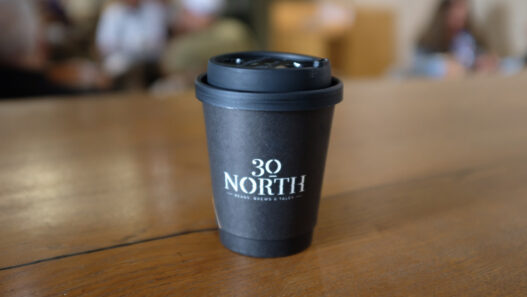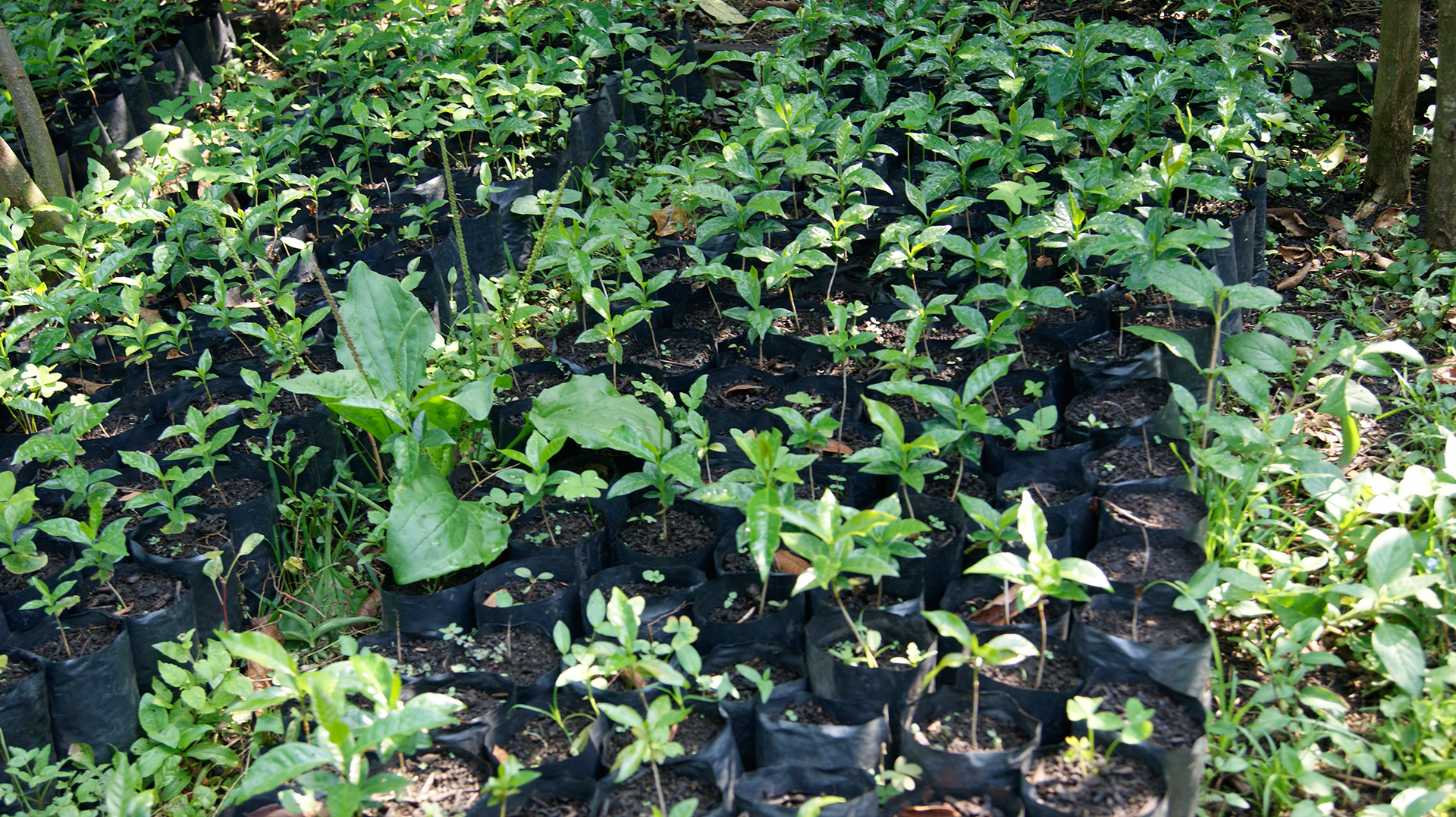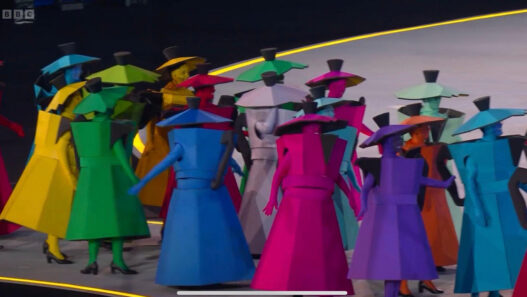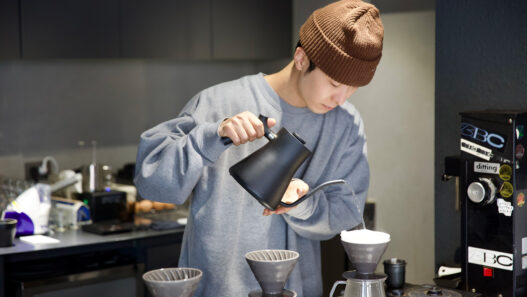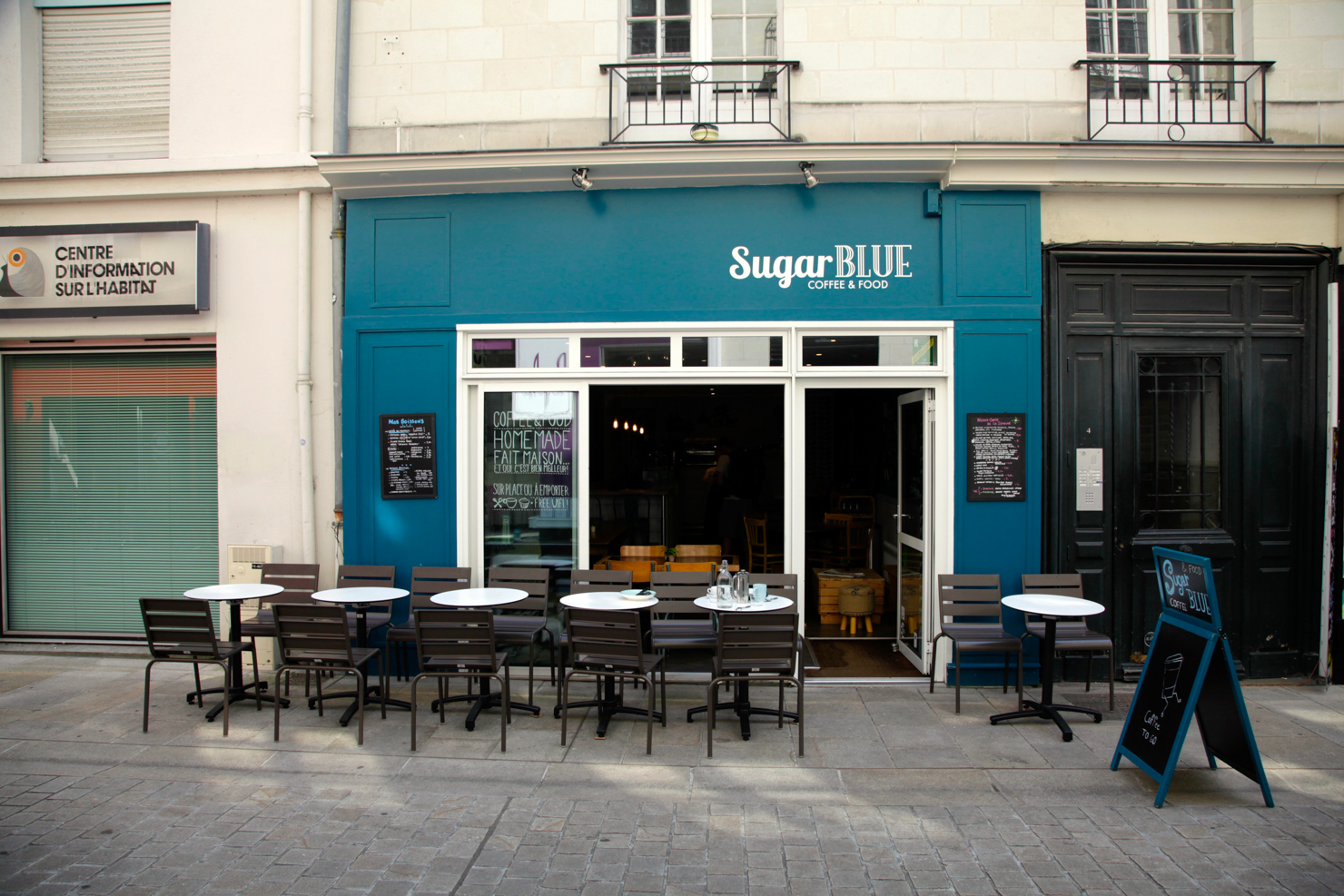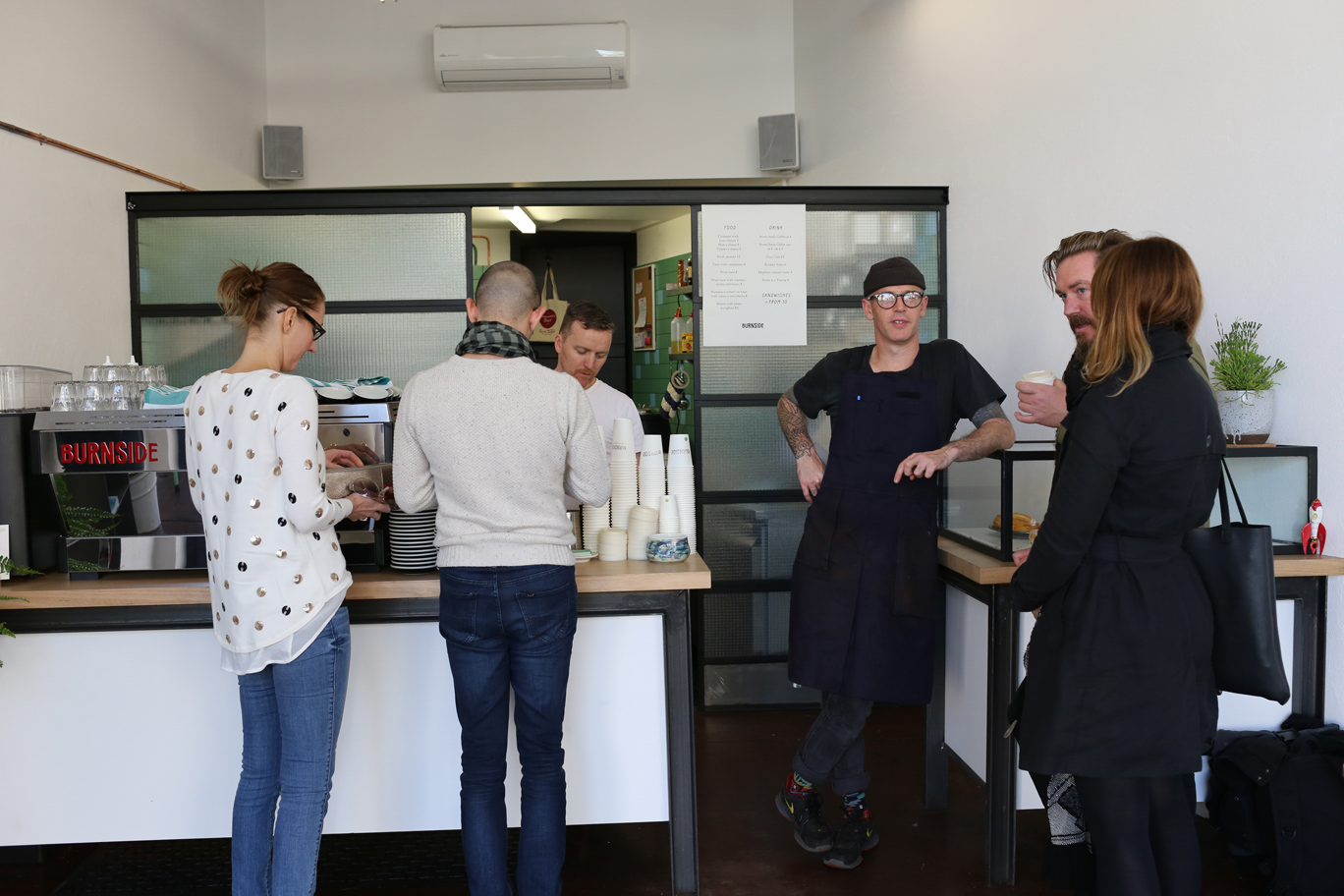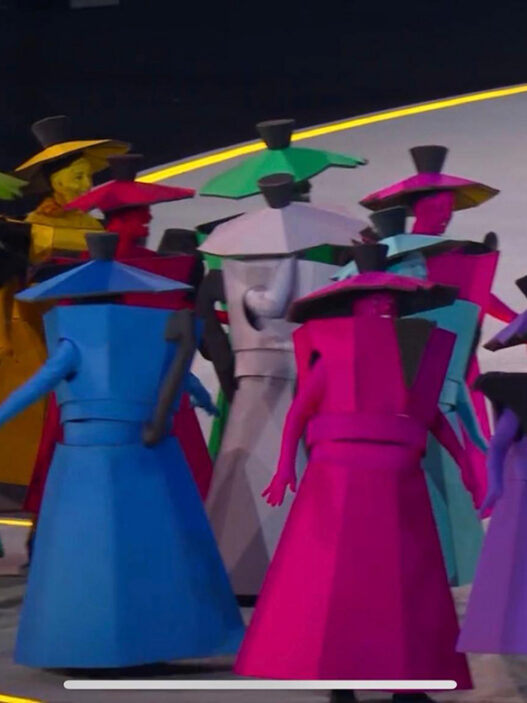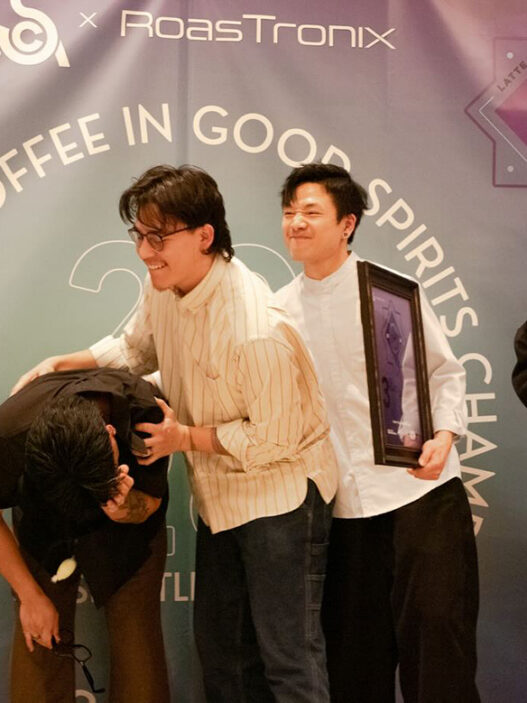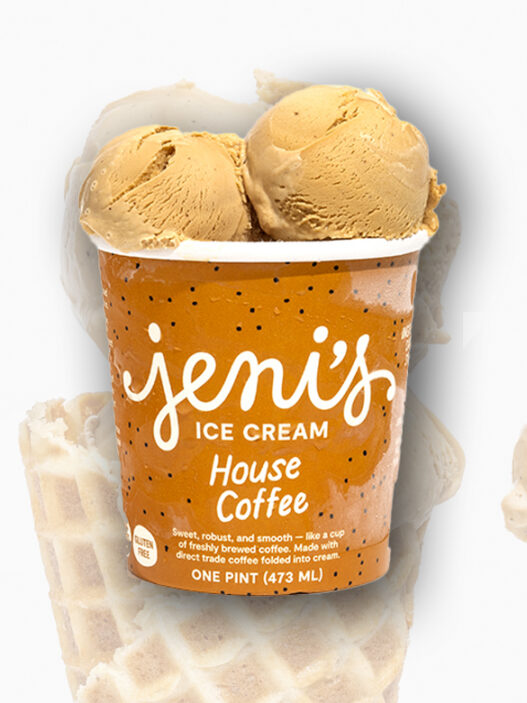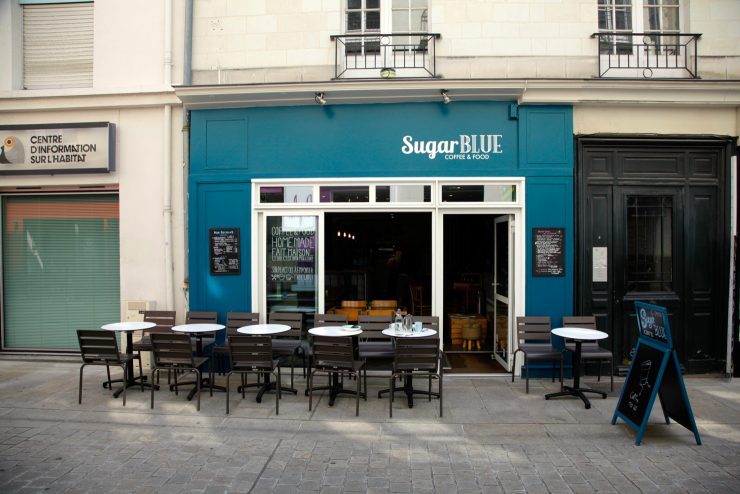
Nantes is occasionally referred to as the Portland (Oregon) of France. Spend a few hours here and you can see why. Bikes rule the road, and everywhere you look there’s a touch of funkiness, be it in the public art structures, the architecture, or the crazy place called Les Machines de l’île, where they construct huge, mechanically operated animals, like the city’s famous elephant.
In terms of coffee, Nantes isn’t quite yet Nantlandia, but as the French specialty coffee wave spreads from Paris, Nantes too has seen the opening of its first specialty coffee shop. In fitting Portland spirit, I was in Nantes to attend a bike conference, where the only coffee on hand was from a cool-looking bike coffee cart sadly serving Nespresso—so a morning coffee at Sugar BLUE was absolutely in order.
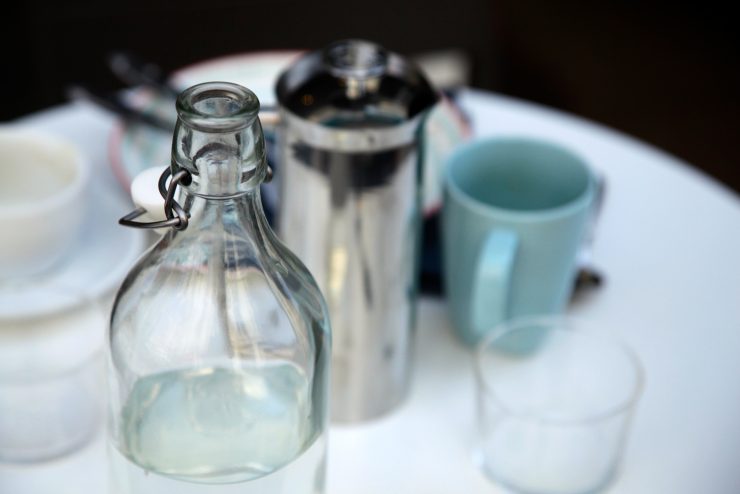
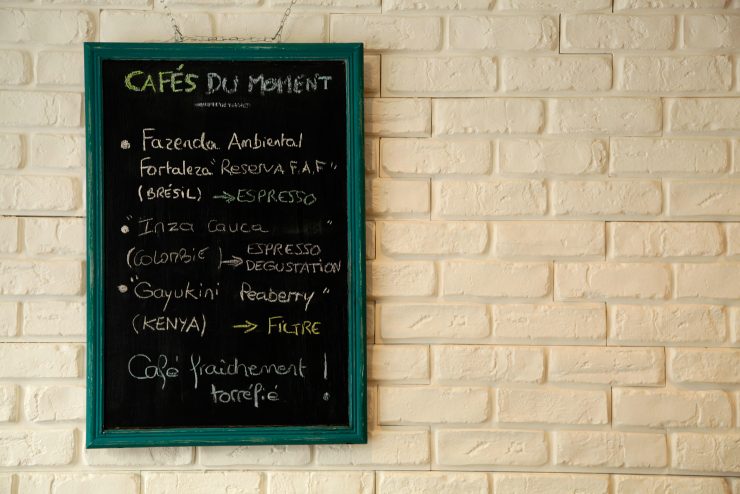
It was a slow Friday morning, so we had the cafe to ourselves. The sun was shining, so we opted for an espresso and a French press at one of the tables outside. Sugar BLUE opened in 2014, a cafe devoted to serving specialty coffee and food made in-house. To the outsider, it might seem odd that a cafe would have to explicitly indicate that they are making their own food, but as the French cafe and restaurant scene has faced an ever-escalating problem of pre-made foods, identifying “fait maison” to remind the customer that they won’t just be eating an industrial quiche heated in a microwave has become not only a smart business move, but one required by French law.
Already dedicated to sourcing a quality product, most specialty cafes do fall into the category of making their food themselves, or if they don’t, buying it from specialty baking and catering companies who can ensure quality.
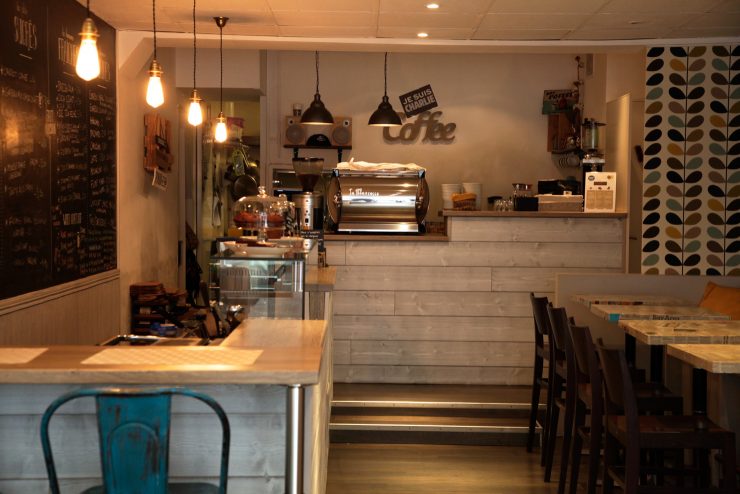
At Sugar BLUE, there is a mix of traditional French bistro offerings—quiche and salad for lunch—as well as the more Anglo, specialty coffee cafe repertoire like carrot cake and quinoa salad. Proudly noted on a blackboard outside are all of the different Caffè Cataldi offerings, and a reminder to the customer that the coffee served here is “freshly roasted.”
A small detail like this is what reminds us that we are still in France. Specialty coffee is far from the norm, and in some places, still completely remains an unknown. Noting that the coffee served is freshly roasted might not mean anything to someone passing by, but it just might make them stop and ask what it means. I asked the barista how the people of Nantes had welcomed them. She made a comment along the lines of “some people love us, some people are still learning.”
That’s a sentiment that rings true in a lot of places like this. It would seem that in a country that has for long been the home of an iconic cafe culture, bringing in a new style of cafe would simply be part of the evolution, but introducing this style of coffee isn’t as simple as just serving it. Sugar BLUE, like many of the other specialty coffee shops in France that I have visited, are all about ensuring that they serve their local community—they want to be the local hub, not just for specialty coffee lovers, but for everyone—as well as a place for education.
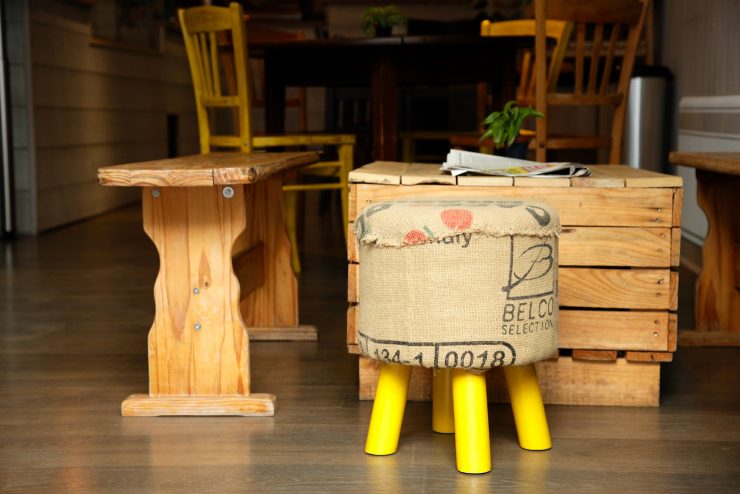
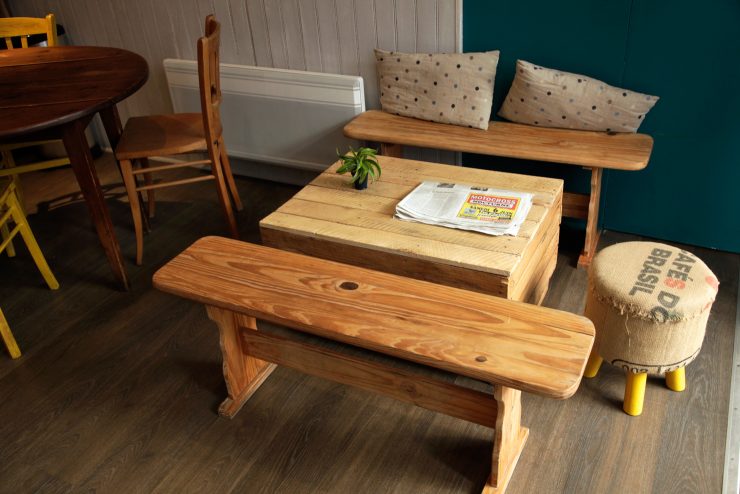
What makes Sugar BLUE stick out from the surrounding locales, besides the coffee, is its décor. The cafe is peppered with stools, all made from upcycled coffee bags; very much a funky Nantais touch. That the cafe gets its coffee from Caffè Cataldi, just a stone’s throw away in Brittany, is an additional local element that adds to the cafe’s character.
With all that has been happening in France over the past two years, it’s easy to jump to the conclusion that the specialty coffee revolution has hit France. But the revolution is far from complete—there is plenty more work to do, and therein lies the opportunity. It’s exciting to see places like Sugar BLUE outside of the capital, run by a younger generation passionate about serving a good product and making a welcoming space. How these places perform moving forward is going to be an indicator for whether or not French specialty coffee culture will sink in and become part of the norm, or is merely a passing trend.
Until then, if you’re in the mood for a French city with a funky vibe, and where you can ride your bike to the coffee shop, take some time to come to Nantes and check out Sugar BLUE.
Anna Brones (@annabrones) is a Sprudge.com staff writer based in Paris, the founder of Foodie Underground, and the co-author of Fika: The Art Of The Swedish Coffee Break, available now from Ten Speed Press. Read more Anna Brones on Sprudge.




